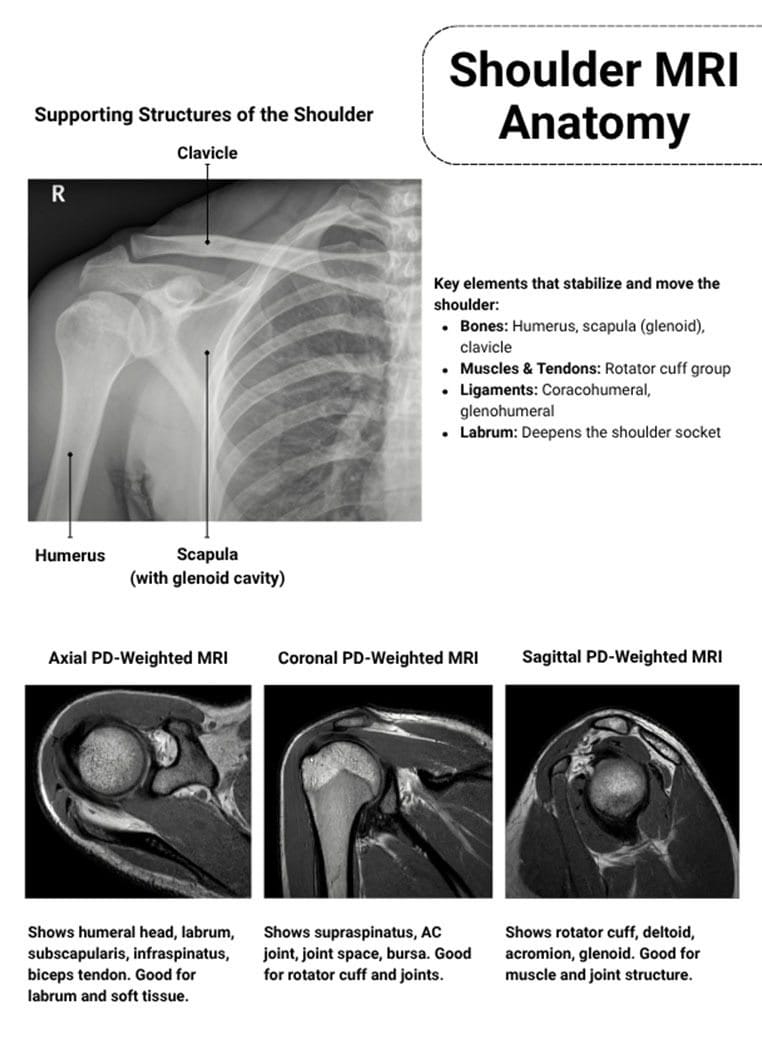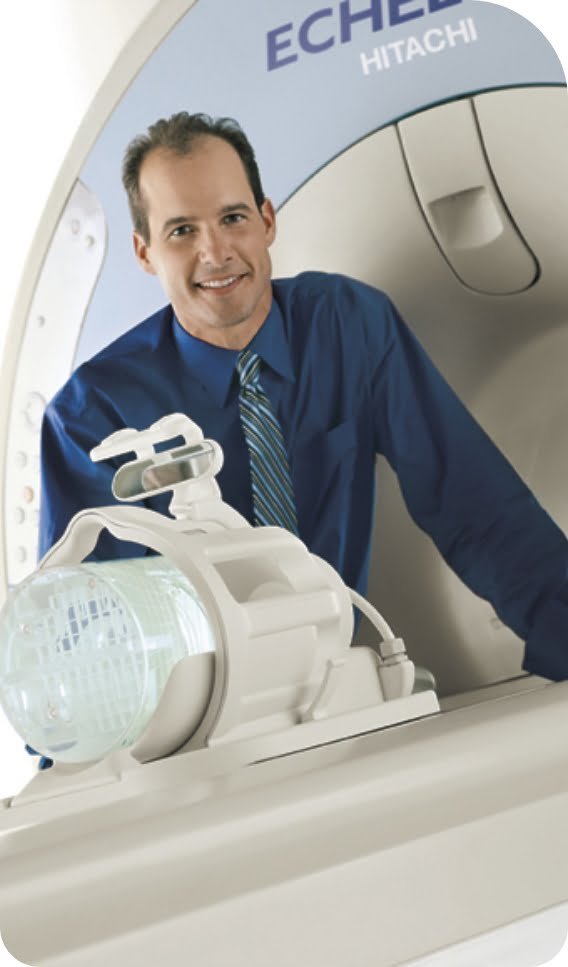Shoulder pain is one of the most common musculoskeletal complaints (Ashir et al., 2020). While radiographs offer a crucial preliminary examination and ultrasound can help identify full-thickness tears for shoulder evaluation, magnetic resonance imaging (MRI) offers superior, all-encompassing imaging of soft-tissue components, particularly the rotator cuff, and labrum, making it the preferred technique for pain management technicians (Imaging, 2018). The non-ionizing radiation, excellent resolution, and multiplanar imaging of magnetic resonance imaging (MRI) make it an essential diagnostic tool for the assessment of the ligamentous structures, joint capsule, and cartilage. It is important to discuss how Manhattan MRI helps cater to this problem and provides lifelong solutions to patients who suffer from localized or diffused shoulder-related pain.


When assessing shoulder pain and clinical impingement syndrome, magnetic resonance imaging (MRI) is commonly regarded as the preferred imaging modality. This is due to its capacity to show the link between the coracoacromial arch’s overlying osseous and soft tissue components, as well as its direct evaluation of all the soft tissue structures of the subacromial area (Fritts & Craig, 1994). Medical practitioners commonly prefer MRIs for shoulder pain because of their ability to provide enhanced soft tissue imaging, rotator cuff assessment, evaluation of bony structures, assessment of joint inflammation, preoperative planning, and guidance for minimally invasive interventions.
Apart from rotator cuff injuries, ligament injuries, and tendonitis, some important conditions associated with shoulder pain are as mentioned below:
A. Indication: Chronic shoulder pain, stiffness, and reduced range of motion.
B. Details: MRI helps in evaluating the condition of the glenohumeral joint, and identifying signs of arthritis or degenerative changes.
A. Indication: Pain in the front of the shoulder, especially during certain movements.
B. Details: MRI is used to assess the condition of the long head of the biceps tendon, detecting issues such as tendinitis or tears.
A. Indication: Recurrent shoulder dislocations or a feeling of instability.
B. Details: MRI can reveal structural abnormalities, such as ligamentous laxity or injuries contributing to shoulder instability.
A. Indication: Gradual onset of shoulder stiffness and pain.
b. Details: MRI helps in assessing the joint capsule and surrounding structures, aiding in the diagnosis of adhesive capsulitis.
A. Indication: Recent shoulder injury or trauma.
b. Details: MRI is used to assess soft tissue injuries, bone fractures, and the overall impact of trauma on the shoulder structures.
A. Indication: Fever, swelling, and localized pain.
b. Details: MRI can identify signs of infection, including abscess formation, helping in the diagnosis and management of infectious conditions.
Understanding the particular circumstances of each patient is the first step in our dedication to personalized treatment. With Manhattan MRI’s Shoulder MRI, our highly qualified radiologists can accurately identify and evaluate the precise regions causing shoulder pain. This thorough examination serves as the basis for creating individualized treatment programs that meet each patient’s demands and guarantee the best possible results. The ability for enhanced diagnostics is a technological prowess that is instrumental in providing accurate diagnoses, empowering both patients and healthcare providers with the information needed for effective pain relief strategies.
If your shoulder doesn’t respond to non-operative treatments and the diagnosis remains unclear, seek an outpatient imaging facility that provides magnetic resonance imaging (MRI) using state-of-the-art equipment for precise and comprehensive diagnostic results.
If you’re seeking a shoulder MRI nearby, here are a few tips:
Manhattan MRI is an ACR-accredited facility offering top-quality imaging with an emphasis on patient safety. We believe everyone deserves access to high-quality, affordable healthcare. Our mission is to elevate medical imaging standards with advanced MRI techniques like DWI and fMRI to assess organ function and detect microscopic abnormalities.
Our expert radiologists and technologists diagnose shoulder issues such as arthritis, bone tumors, torn ligaments, and infection. This thorough evaluation helps create personalized treatment plans for optimal outcomes. We focus on patient comfort by providing a calming environment, offering noise-canceling headphones, and using open and wide-bore MRI machines to reduce claustrophobia.
The cost of a shoulder MRI in Midtown Manhattan varies based on factors like whether contrast is used and your insurance coverage. Generally, the price ranges from $500 to $1,800, but our cost is $450. At Manhattan MRI, we accept insurance plans, which can significantly lower or fully cover the cost of your scan.
As previously discussed, MRIs have the best diagnostic accuracy and efficacy when it comes to shoulder pain and other associated nerve, muscle, or joint abnormalities. When considering MRIs, a multitude of opportunities await the patients at our company. An MRI company that offers high-resolution, highly accurate imaging services with timely report analysis; not only this but also provides consultation so the patients understand the root cause behind their pain for effective and long-lasting relief from pain. It improves the functional limitation due to pain, removes the burden of disability due to pain, and allows the patients to return to their normal physically active lifestyle.